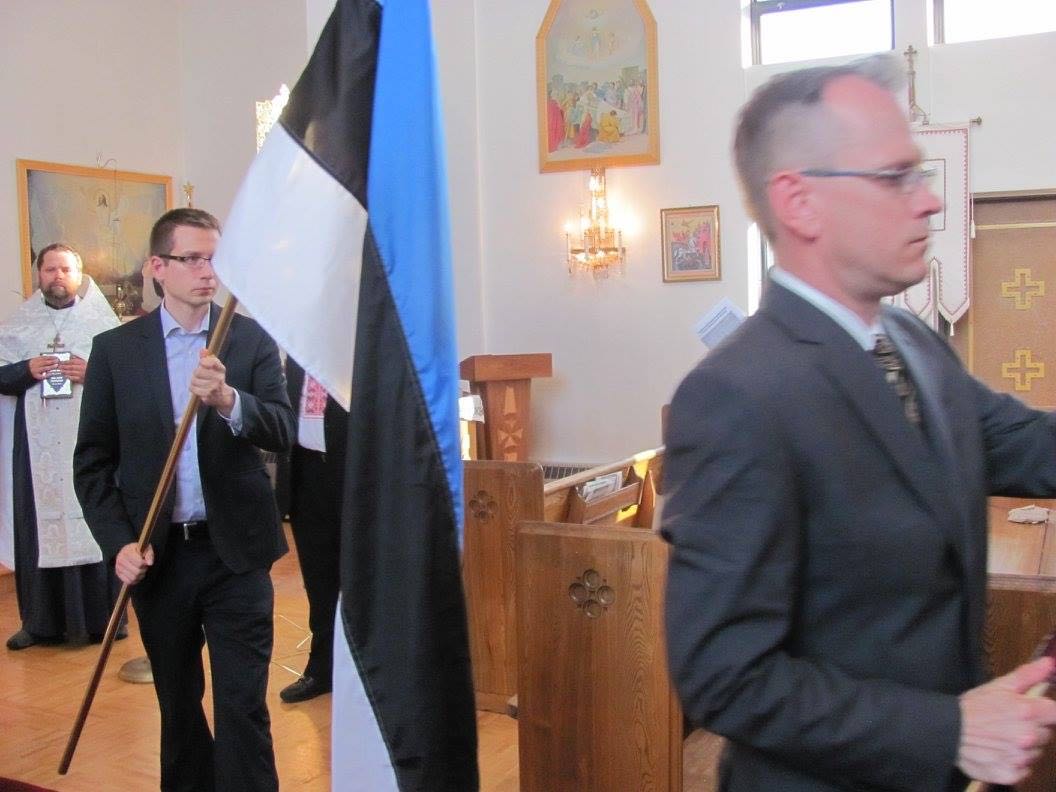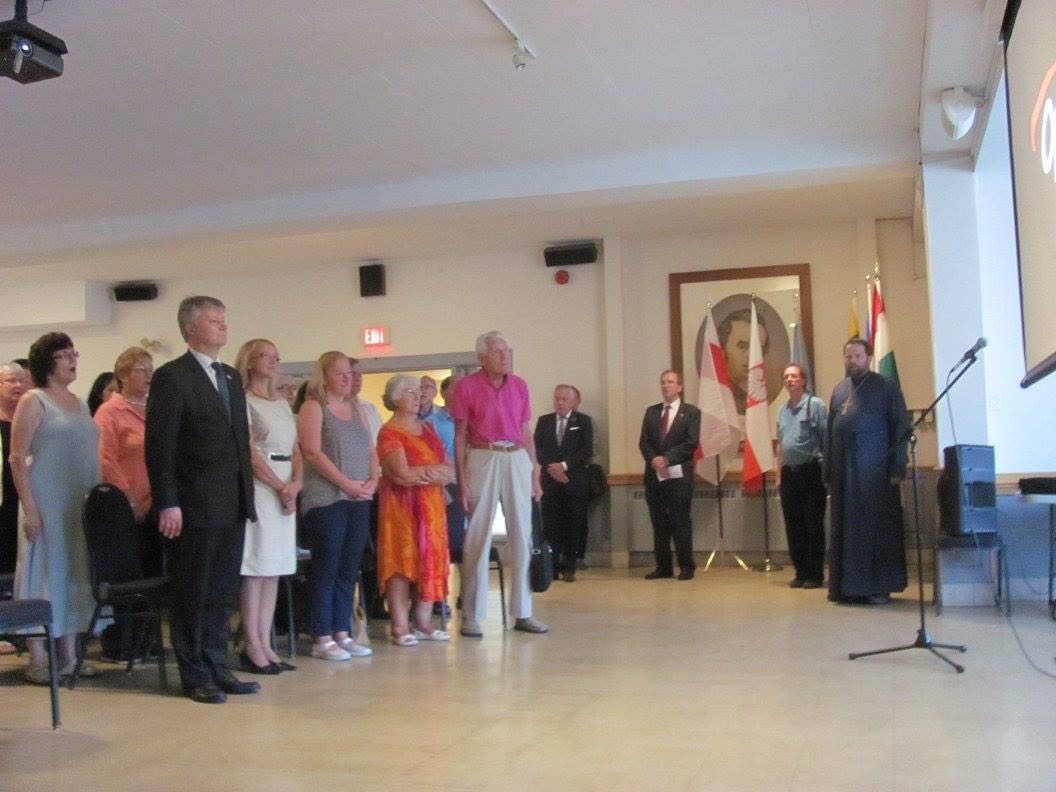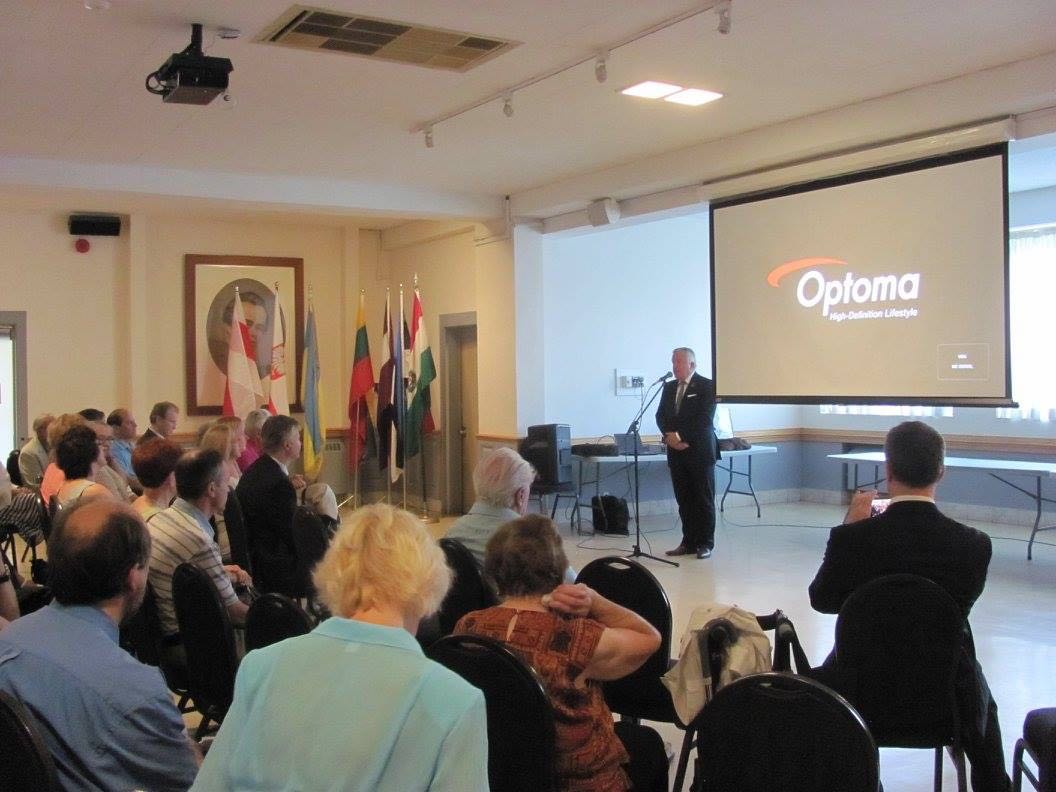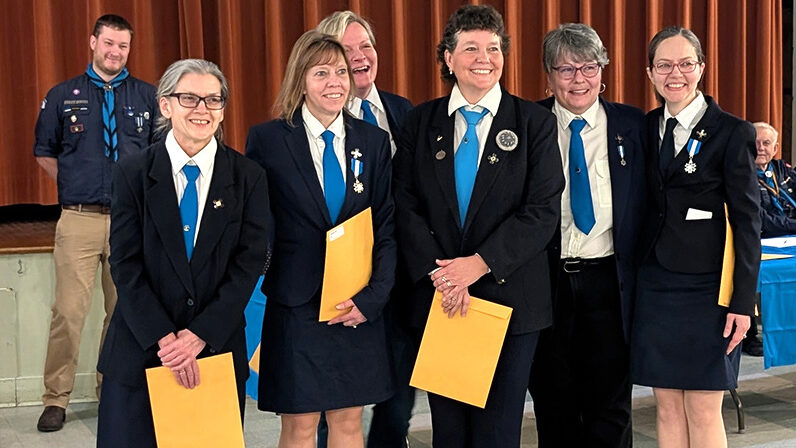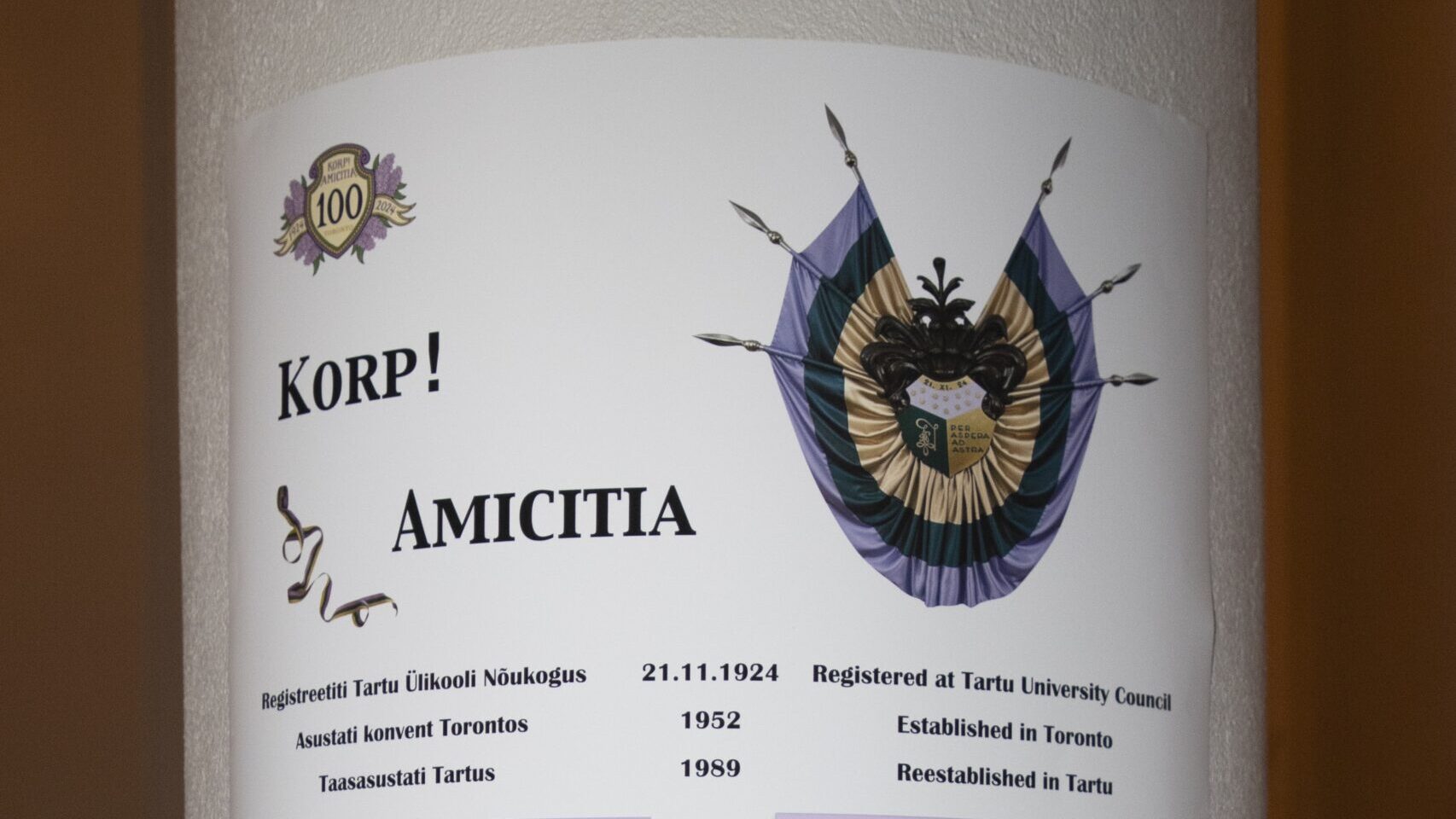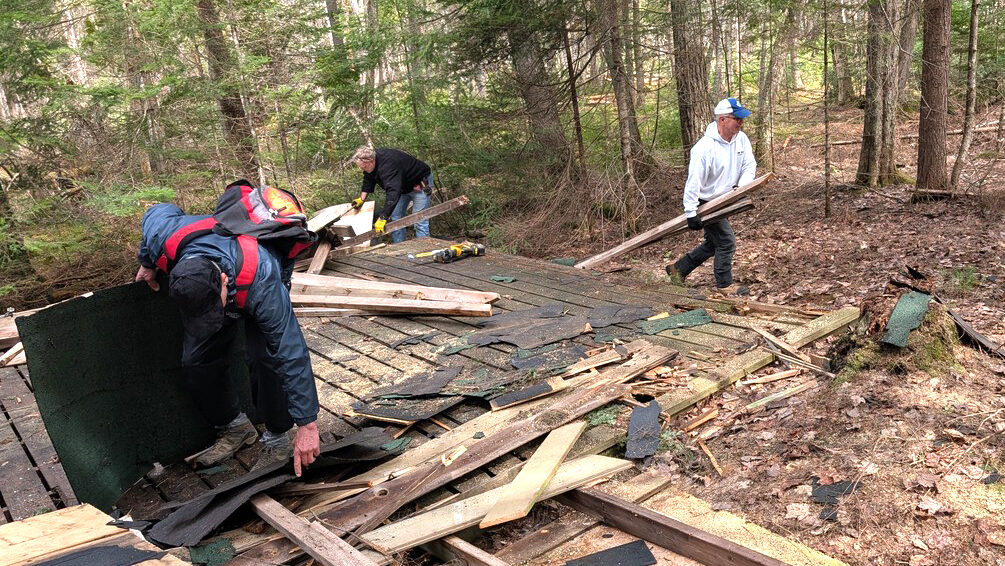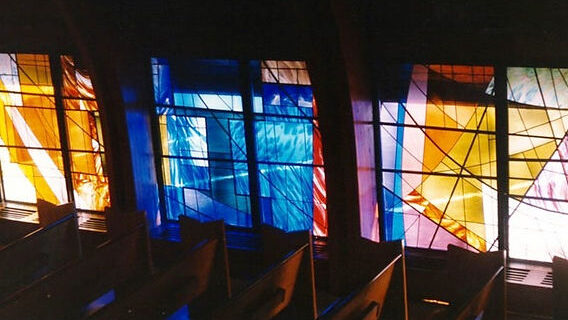Prayers for Victims
Father Ihor Okhrimtchouk and the Assumption of the Blessed Virgin Ukrainian Orthodox Church, located in the west end of Ottawa, were gracious to host the usual service honoring the memories of the victims. The atmosphere in the church was solemn and pensive while all listened to the Father's melodic Ukrainian prayers. Representatives of the Latvian, Estonian, Polish, and Hungarian communities contributed their own distinctive prayers.
After the service, everyone followed the flag procession downstairs to the community hall where the film projector was set up. The Chair of Tribute to Liberty, Ludwik Klimkowski, spoke briefly beforehand to provide an update on the national victims of communism memorial and on the importance of sharing stories of the Nazi-Soviet atrocities. Ludwik highlighted the lesser known heinous crimes of Soviet Major-General Vasily Blokhin, who murdered 7,000 polish prisoners of war within one month.
Change Offered a New Opportunity
The anticipated documentary, Outside the Sphere, examined the history of the Baltic communities in North America and reviewed the tyranny they narrowly escaped. It also offered a reminder that some backwards looking attitudes are still present today. A prime example is Vladimir Putin's own remarks, “The breakup of the Soviet Union was the greatest geopolitical tragedy of the 20th century.” The film was a joint production between Marcus Kolga and the event's lead organizer, Andris Kesteris.
Showing a documentary film was greeted with a lot of interest at the event. Keynote speakers had addressed past commemorations and were well received, but some found the change to present a new opportunity. Long-time Black Ribbon Day participant Tõnu Onu explained, “the documentary was a good idea since it gave an overview of events in WWII that most Canadians, even in the ethnic communities concerned, are unaware of. A keynote speaker is interesting if the person is a well-known figure, but they often don't address issues more than in a very general way.”
Special Sponsor and Guests
One of the sponsors of the reception that followed the film is a well known local meat market, Saslove's. Owner Joel Diener's attendance and support held a special personal meaning as the son of a Holocaust survivor. Joel's father, Nathan Diener, lost his family to Nazi atrocities in Poland and spent time in a displaced persons camp before emigrating to Canada in 1948. He built a new life here and became one of the founders of the popular meat market in Ottawa. Their delicious store-made chocolate chip cookies I sampled at the reception are a new favourite.
Surprise special guests were at the ceremony as well. The new Ambassador of Latvia, His Excellency Kārlis Eihenbaums, and his spouse, Inara, both participated. They only just arrived in Canada two days before.
Summer Challenges
This time of year typically presents challenges for organizers trying to attract participants. Andris Kesteris also relied on others to help promote the event in their own cultural communities. As was noted at the event, attracting people to a serious and somber service on a summer evening is a challenge, given all the other activities that attract people in the summer.
Tõnu Onu pointed out some additional factors, “the challenge in places such as Ottawa, where the various ethnic communities are relatively smaller, is getting enough volunteers to do the organizing and then attracting a wider public, i.e. more than the older generation who still have some personal connection to WWII.” Despite all these challenges, organizers were very pleased to see the strong showing of support at the event.
Black Ribbon Day started here in Canada and now has become a worldwide day of remembrance. In 2009, Canada's Parliament officially declared Black Ribbon Day a national day of remembrance every August 23rd. For more information on the day, visit www.blackribbonday.org.
Paul Laanemets, EKN
PHOTOS – by Virginija Craig (2016)
